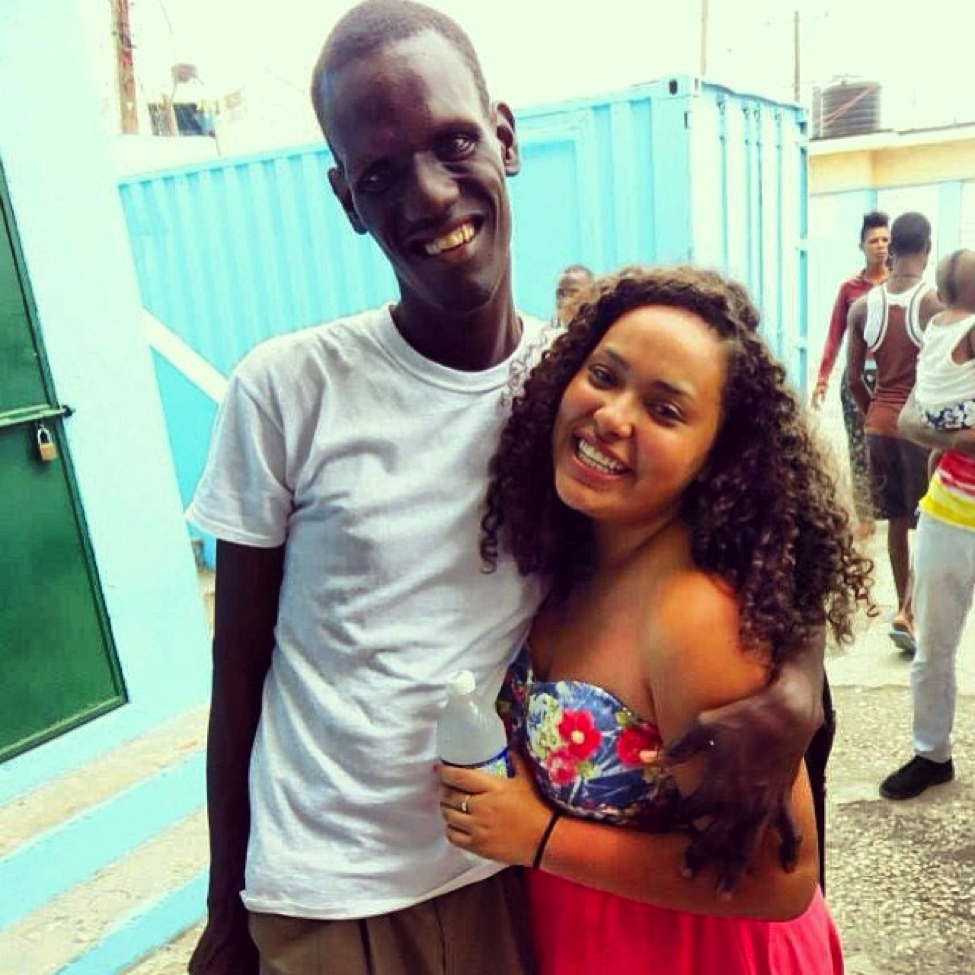
BY STEPHANIE SIOW:
Over the spring break, fifteen of us Yalies travelled to Kingston, Jamaica to serve a community. We talked to and mentored youth and children, covering topics ranging from health to family values and relationships.
In Jamaica we soon became drunk on culture, amidst the vibes and colors of this diverse island. Kingston was not particularly overwhelming, with standard office buildings, colonial-era houses (we visited Devon House, one of the world’s best ice-cream joints), and city parks.
We loved Jamaican culture: their celebrated athletes, patties and jerk sauce, reggae music, and vibrant carnivals. We loved the beautiful warmth, the waterfalls and seas. Most of all, we loved the people: those we met were open, outspoken and tough.
It was clear from the start that Jahni was different.
On two separate instances, when we were conducting our sessions, two youth walked up to Jahni and slapped him. Had he not been restrained by friends, he would have fought back. We soon heard of more stories. Lured by some homosexuals’ promises of KFC chicken and sweets, he was anally-raped on the way to class, and hospitalized as a result.
When my teammate, Adriana Embus ’17, confronted them, she was startled by their responses. He was a “fish,” they reasoned. “He likes guys.” The list went on: he likes sweets too much, he enjoys it, and everyone else does it. We still don’t know if he is a homosexual, but it didn’t matter to us. This was victim-blaming and physical and sexual abuse of a mentally-challenged 25-year-old man – by both adult and children perpetrators. Perhaps the worst part was that they didn’t see anything wrong with it, and so these abusive incidents could well happen again.

Our group was outraged and distraught. Coming from such a liberal environment – America, New England, Yale – we had never heard first-hand of this extent of homophobia and abuse. In a friend’s words, this hit home. Hard.
According to the WHO, Jamaica’s Mental Health Policy was last revised in 1997 and “is currently inadequate and requires revision and upgrading to include critical components such as human resources and human rights issues to name a few.”[1] Suffering from a lack of psychologists, social workers and occupational therapists due to the unattractive remuneration, Jamaica faces a severe manpower shortage. There is no legislation for financial support for those with mental disorders, so only 1% of such persons receive some form of welfare benefits.
We had to understand that we were in a completely different environment from what we’re used to, where the mentally-challenged aren’t given as much care as we would have liked. We knew that these acts are commonplace in some regions of the world.
What could we do? We learn about cultural relativism in school, where every culture is valid. Since no culture is morally superior to any other, sometimes we don’t question – we acknowledge, accept and tolerate. We weren’t there to impose our values on them, or revolutionize their beliefs. Some of us talked to the community center staff. All we could do was question, encourage them to think, and hope that they would reconsider their actions.
The culture of victim-blaming or homophobia amongst certain communities isn’t going to change overnight. The Jamaican identity has an emphasis on self-reliance, a drive to succeed and general defiance stemming from historical opposition to European authority. In a society where masculinity is highly valued, anything that challenges that notion is going to be treated with utter disgust.
Some of our Jamaican friends have changed their views towards Jahni after we stood up for him and talked to them. Before we left, Adriana begged the guys to defend him if they saw that he was being hurt. Although Jahni’s tendency to hit others first may be problematic, if there are people who look out for him, “hopefully things will change and [the community] won’t treat him in the same way,” she said.
Adriana and I agree that Jahni’s story inspires us to continue fighting for those who are unable to stand up for themselves. Until then, across the globe, there remains a great need for infrastructure and services to help the mentally-challenged.
Stephanie Siow ’17 is in Pierson College. Her beat is on events in Southeast Asia. Contact her at stephanie.siowsulyn@yale.edu.